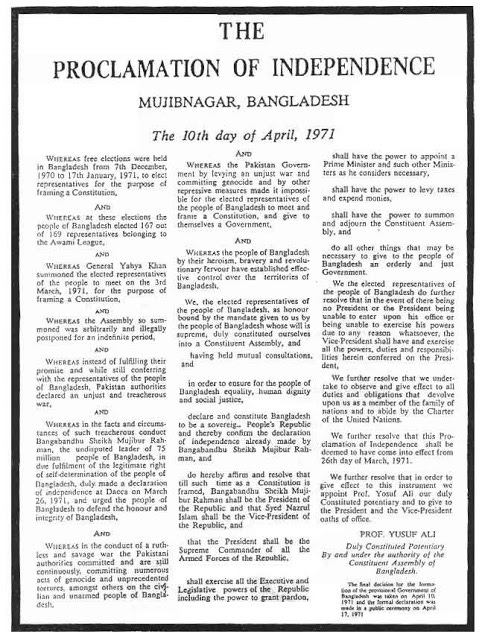By Jyoti Rahman
This post proposes a modest package of constitutional reforms that could go a long way towards avoiding the winners-take-all politics that bedeviled the post-1990 democratic trajectory.
The package is modest in the sense that it retains as much of the existing constitutional setup as possible — unitary republic, parliamentary system, and first past the post voting (with one exception) are all retained. The major innovation being proposed is an upper house of the parliament that would be elected through proportional voting.
Specifically:
- Government to be formed on the basis of a simple majority in the 300-member lower house elected on the first-past-the-post basis — that is, all finance / supply / confidence motions to require the simple majority in the lower house
- A 100-member upper house to be elected on the basis of proportional basis — either on the same ballot as the lower house, or on a separate ballot
- Constitutional amendments to require a two-thirds majority on both houses, and all other legislations to require a simple majority on both houses
- President to retain the existing reserve powers, but to be elected by an electoral college consisting of all parliamentarians (both houses) and elected local government members
- All appointments to constitutional posts to be approved by a majority of the relevant committees of both houses, and a secretariat for judiciary, as well as a panel or college of potential judges (and other institutions) to prevent court-packing or politicisation of institutions
- Local governments to be constitutionally recognised and empowered, with their powers and responsibilities to be reviewed periodically, and MPs are to be barred from all local activities other than pure representation
- Parliamentary and local government terms of four years, with a ten-member election-time government to be formed with upper-house members (reflecting the outgoing parliament) who will not be seeking re-election
- A bill of rights to ensure that fundamental human rights are enshrined into the constitution
The proposed package is modest also in the sense that it incorporates elements that have been proposed by both the largest political party, the BNP, and the newest major political force, the Jatiya Nagorik Committee. The next post will cover how the proposed package could be implemented.
It is important to understand that the proposed package will not solve all of Bangladesh’s problems. For example, it will probably take a few electoral cycles before the delineation of responsibilities are to become clear. More importantly, no constitution can guarantee a functioning parliament if the parliamentarians themselves don’t take their task seriously.
The proposed package cannot ensure that the next prime minister will run a bad government. Nor can it ensure that the opposition members will scrutinise the next prime minister for running a bad government. However, no party in our history has ever won two-thirds of votes in a fair election. If that trend continues, the proposed package ensures that the next prime minister will not be able to do away with electoral democracy the way Sheikh Mujibur Rahman and Sheikh Hasina did.
The proposed package is also modest in the sense that it skirts the so-called high ideals and other identity issues that has been a feature of our constitution since 1972. This is deliberate. In a pluralist society, there is not likely to be consensus on many identity or cultural issues. However, if fundamental human rights are enshrined in the constitution, and democratic governance is cemented over time, there is no need for such consensus for the republic to function.
Instead of the Mujibist high ideals or their post-1975 derivatives, or indeed equally dubious calls for a second republic, the constitution should incorporate the 1971 Mujibnagar Proclamation that is the foundation of Bangladesh.

This post was drafted two weeks ago, but couldn’t be published for personal reasons. As such, its relevance has diminished.
Original Source: A modest package – by JRahman – Mukti

